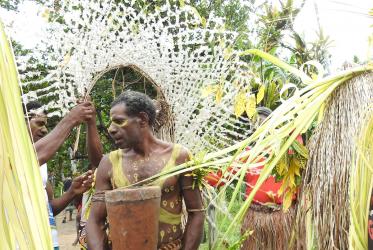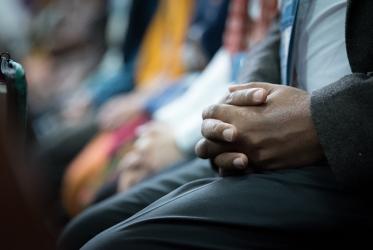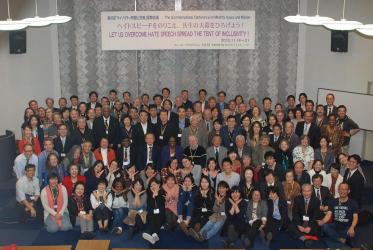Displaying 1 - 20 of 24
The cry of the Papuans in Indonesia
14 November 2019
G20 summit: call to pray for peace in Hamburg
07 July 2017
"I hit the ground running": Katalina Tahaafe-Williams
16 February 2016
Japanese churches discuss minority issues
01 December 2015
Land rights focus of panel discussion
17 November 2015
A humble man firmly rooted in faith
20 August 2015
Indigenous faith leaders reflect on resilience and climate change
23 September 2014
New UN document opens door for churches to do more for indigenous rights
23 September 2014












